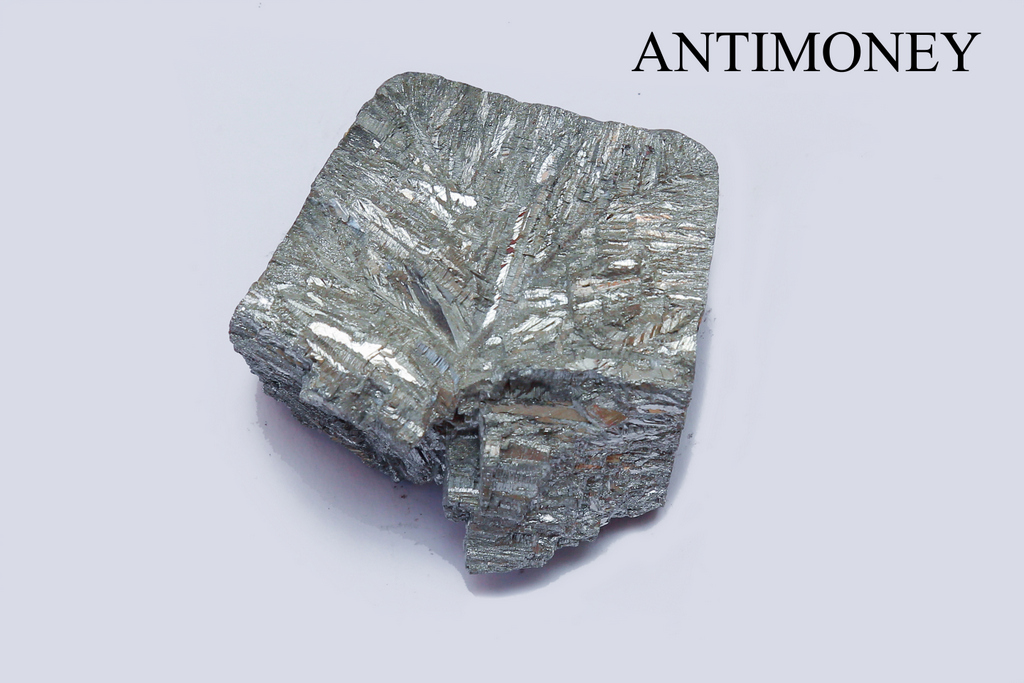
Antimony Metal Ingots
Specification
Sb : 99.65% min
HSN Code
The Indian HSN Code for Antimony Metal Ingots is 81101000.
MELTING POINT
Antimony Metal Ingots
Antimony Metal Ingots are a type of metal that is often used in the production of alloys. It is also used as a semiconductor material, with the specific materials being zirconium antimonide and hafnium antimonide.
Production Of Antimony Metal Ingots
Antimony is a brittle metal that is not very resistant to corrosion. It is used in the production of antimony alloys, which are mainly used for hardening lead and tin.The process of producing antimony ingots begins with the extraction of antimony from its ores. The extracted material is then heated until it melts and a slag separates from it, leaving pure antimony metal behind. The liquid metal can be cast into ingots or poured into molds to produce bars or other shapes.The production of an antimony ingot requires the use of furnaces, crucibles, and other equipment that are designed specifically for this type of work. For example, a furnace may be used to melt the raw material before it can be cast into an ingot or poured into a mold.
Properties Of Antimony Metal Ingots
Antimony is a brittle, silver-white metal that is easily cut and scratched. Antimony has a low melting point, so it can be cast into molds and will take on the shape of the mold.Antimony is a brittle, silver-white metal that is easily cut and scratched. Antimony has a low melting point, so it can be cast into molds and will take on the shape of the mold.
Application Of Antimony Metal Ingots
Suppliers of Antimony Metal Ingots
Antimony is a chemical element with symbol Sb and atomic number 51. It is a brittle, lustrous, diamagnetic metal that has a silvery white appearance at first but quickly oxidizes in air to form a dull gray coating.Antimony has been known since ancient times and was long used as an ornamental material. The name comes from the old name for the island of St. Antony, which was rich in the mineral when mined by the ancient Egyptians.There are many suppliers of Antimony Metal Ingots in China, such as Shenzen Yucheng Metal Co., Ltd., Henan Jinxin Nonferrous Metal Co., Ltd., Ningbo Shengda Nonferrous Metals Co., Ltd.,
Exporters of Antimony Metal Ingots
Antimony Metal Ingots are a chemical compound that is made up of antimony and sulfur. They are used in the manufacturing of batteries, insecticides, and flame-proofing agents.Antimony Metal Ingots are an important commodity for many industries. Over the years, the demand for this metal has gone up significantly due to its use in everyday products. This has led to a significant rise in exports of Antimony Metal Ingots from countries such as Chile, China, and Indonesia.
Supply range of Antimony Metal Ingots
Antimony is a chemical element with symbol Sb and atomic number 51. A lustrous gray metalloid, it is found mainly as the sulfide mineral stibnite (SbS).Antimony metal ingots are used for producing various types of metal products. Antimony metal ingots are available in various supply ranges such as small, medium, and large.
Testing of Antimony Metal Ingots
The testing of antimony metal ingots is an important component of the refining process.The tests are designed to ensure that the ingots meet the requirements for chemical composition, mechanical properties, and other physical characteristics.The physical tests are performed on the ingots after they have been heated to a temperature sufficient to remove any surface oxidation and provide a smooth surface.
Inspection of Antimony Metal Ingots
Ferro Molybdenum, Inc. (FMO) is an international producer of Ferro molybdenum, a metal alloy with a low carbon content. Ferro Molybdenum’s products are used in the production of steel. Ferro Molybdenum also produces and sells ferromanganese and ferrosilicon. The Company operates through three segments: Ferromanganese, Ferrosilicon and Ferro Molybdenum. The Company’s product portfolio includes high-purity ferromanganese, low-carbon ferromanganese and silicon metal; high-purity ferrosilicon; and low- carbon ferro molybdenum alloy.

ENQUIRY FORM
What is Antimony Metal Ingots ?
Antimony is a brittle, crystalline, silver-coloured metal. It is a chemical element with the symbol Sb and atomic number 51. Antimony is found in many minerals, including stibnite (antimony sulfide).Antimony metal ingots are used in metallurgy and as an alloying agent to make lead hard.
Process of Antimony Metal Ingots
The process of antimony metal ingots is a complicated procedure that requires the use of many different chemicals. Antimony metal is obtained by extracting it from ore and then refining the metal to remove any impurities. It is then cast into ingots or bars.The first step in the process of antimony metal ingots is to extract it from ore. This is done through a process called roasting, where the ore is heated with coal to produce antimony oxide gas, which can be condensed and collected for use in metallurgical processes.
Important of Antimony Metal Ingots
Antimony is one of the most important metals for the production of ammunition and other military equipment.The demand for antimony metal ingots has been increasing as a result of the rise in global defense budgets. Antimony metal ingots are used in the production of ammunition, which is one of the most important components in military equipment. The demand for antimony metal ingots has been increasing as a result of the rise in global defense budgets..
